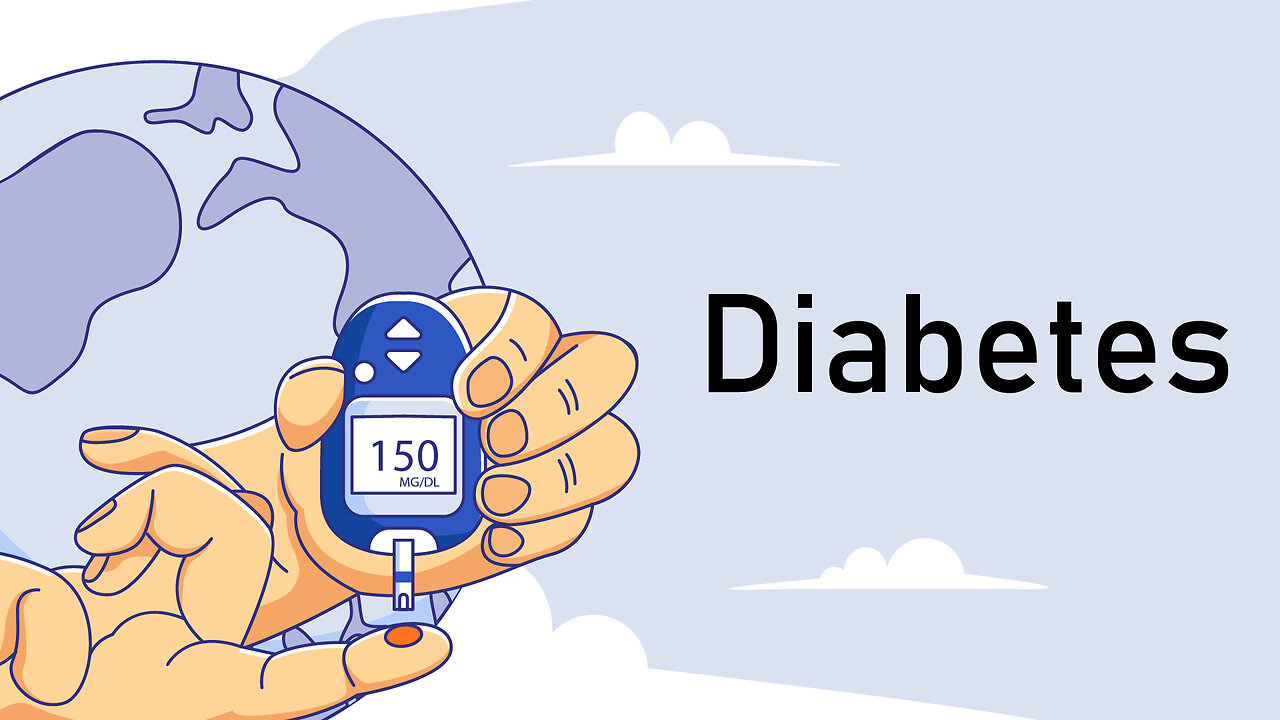Premium Only Content

what is Diabetes?
what is Diabetes?
Diabetes, also known as diabetes mellitus, is a chronic medical condition that occurs when the body has difficulty regulating blood sugar (glucose) levels. Glucose is a crucial source of energy for the body's cells, and its levels need to be carefully maintained within a certain range. Insulin, a hormone produced by the pancreas, plays a central role in this process.
There are three main types of diabetes:
Type 1 Diabetes: In this autoimmune condition, the body's immune system attacks and destroys the insulin-producing cells in the pancreas. As a result, individuals with Type 1 diabetes have little to no insulin production. They require lifelong insulin injections or the use of an insulin pump to manage their blood sugar levels.
Type 2 Diabetes: This is the most common form of diabetes, usually occurring in adulthood. In Type 2 diabetes, the body becomes resistant to the effects of insulin, and the pancreas might not produce enough insulin to compensate for this resistance. Lifestyle factors, genetics, and obesity can contribute to the development of Type 2 diabetes. It can often be managed with a combination of dietary changes, physical activity, oral medications, and, in some cases, insulin.
Gestational Diabetes: This type of diabetes develops during pregnancy and usually resolves after childbirth. It occurs when hormonal changes during pregnancy lead to insulin resistance, and the pancreas cannot produce enough insulin to meet the increased demand. Gestational diabetes requires careful monitoring and management to ensure the health of both the mother and the baby.
Uncontrolled diabetes can lead to various complications over time, including cardiovascular disease, kidney damage, nerve damage (neuropathy), vision problems, and slow wound healing. Therefore, it's important for individuals with diabetes to work closely with healthcare professionals to manage their blood sugar levels and reduce the risk of complications.
Symptoms of diabetes can include excessive thirst, frequent urination, unexplained weight loss, fatigue, blurred vision, and slow healing of wounds. It's essential to seek medical attention if you suspect you might have diabetes, as early diagnosis and proper management are crucial for maintaining overall health
-
 LIVE
LIVE
Steven Crowder
2 hours ago🔴 Trump Lays Down the Law on Ukraine & Russia: Take the Deal or We Walk
68,967 watching -
 LIVE
LIVE
The Rubin Report
41 minutes agoThis Fight Over Trump’s Birth Rate Plan Was So Big It Could Be the End of This Host of 'The View'
2,174 watching -
 59:52
59:52
VINCE
2 hours agoDoes This Move Mean Justice Is Finally Coming? | Episode 29 - 04/24/25
66.6K108 -
 LIVE
LIVE
LFA TV
13 hours agoALL DAY LIVE STREAM - 4/24/25
3,738 watching -
 29:06
29:06
Standpoint with Gabe Groisman
1 day agoIran’s Rise Under Joe Biden
692 -
 LIVE
LIVE
Bannons War Room
2 months agoWarRoom Live
18,150 watching -
 LIVE
LIVE
Discover Crypto
1 hour ago$200K BITCOIN Happening: Nation-State ACCUMULATION Underway!
146 watching -
 2:37:20
2:37:20
Scammer Payback
20 hours agoCalling Scammers Live
2K -
 LIVE
LIVE
The Big Mig™
2 hours agoZelensky The Man With NO Cards To Play
4,786 watching -
 1:23:13
1:23:13
Dear America
2 hours agoUS Military IS BACK, Sees RECORD Numbers + Dem Rep. Calls For Outrageous Minimum Wage Increase!
55.8K24